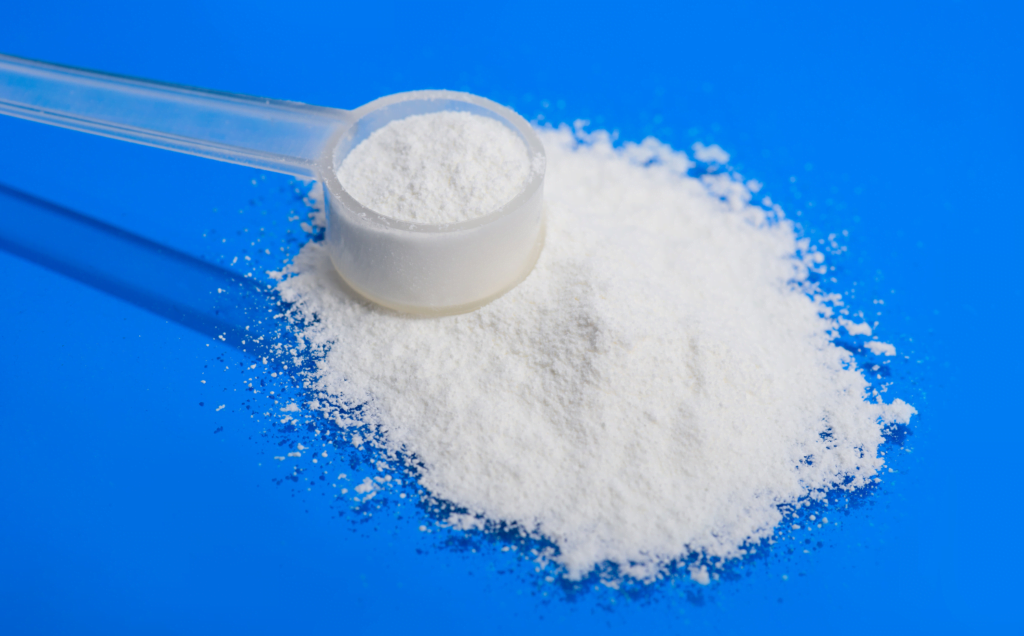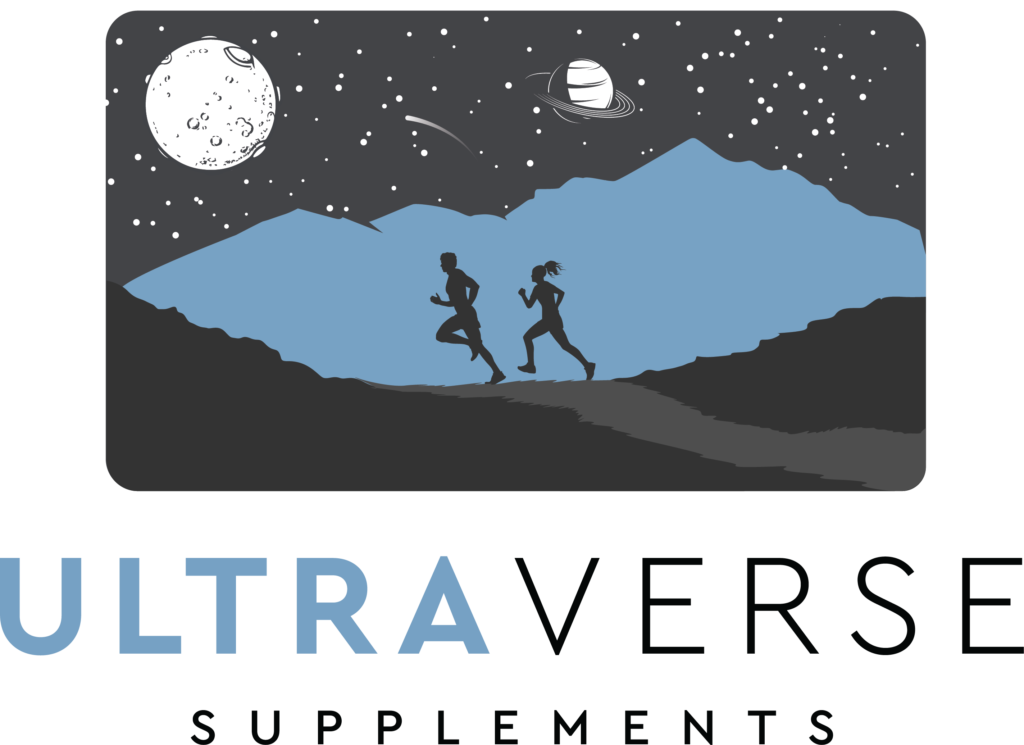Uncategorized
Benefits of Calcium HMB for Endurance Athletes
Before we get into the benefits of Calcium HMB for endurance, you probably want to know what exactly it is.
What is HMB?
Beta-hydroxy-beta-methylbutyrate (HMB) is a naturally occurring chemical that can be found in foods such as grapefruit. Humans naturally produce HMB from the amino acid leucine. This process is long and complicated, so I will skip those details. Let me just tell you that to produce the recommended supplementation dose of HMB, a person would need to consume over 600g of high-quality protein (Wilson et al., 2013).
Obviously, that is just a tad impractical. Therefore, HMB is typically taken via a dietary supplement. Currently, two forms of HMB have been used in supplementation: Calcium HMB and a free acid form (HMB-FA). However, research with HMB-FA is relatively new, and there is not enough data to say if it is as effective as Calcium HMB for endurance. Read on to learn about the benefits of HMB supplements, especially for endurance athletes.
Benefits of Calcium HMB for Endurance Athletes:
As always, here is a quick rundown of the scientifically studied effects of calcium HMB supplementation.
- Improves body composition/lean mass (Wilson et al., 2013)
- Preserves muscle during prolonged exercise (Park et al., 2013)
- Preserves muscle when calorically deficient (Park et al., 2013)
- Improves recovery (Wilson et al., 2013)
- Decreases soreness when taken before exercise (Wilson et al., 2008)
- Improves fat oxidation (Wilson et al., 2008)
- Improves aerobic performance (Durkalec-Michalski & Jeszka, 2016)
- Stimulates protein synthesis (Wilson et al., 2013)
- Improves mitochondrial biogenesis (He et al., 2016)
For all the research nerds out there, let’s talk about what the science says about calcium HMB for endurance athletes.
Wilson et al. (2013) stated in the International Society of Sports Nutrition’s position stand on HMB that it:
- Improves recovery by reducing skeletal muscle damage caused by exercise.
- Enhances skeletal muscle growth, strength, and power when the appropriate exercises are used.
- Increases lean body mass.
- May result in greater decreases in fat mass when used in conjunction with a structured exercise regimen.
- Inhibits proteolysis (the breakdown of proteins into amino acids) and increases protein synthesis (the process in which cells make proteins)
Park et al. (2013) found that HMB supplementation preserved muscle during two scenarios. The first scenario showed that HMB supplementation preserved muscle during prolonged bouts of endurance exercise. Second, the results showed that HMB supplementation preserved muscles when the subject was in a calorie deficit.
However, researchers pointed out that the ergogenic effects of HMB increase when the potential for muscle damage during exercise is high. It is also inferred that the decrease in muscle soreness after working out is due to the protective effects HMB supplementation has on muscles during exercise.
Body Composition, Lean Muscle Mass and Aerobic Capacity
Durkalec-Michalski and Jeszka (2016) investigated whether HMB supplementation affected body composition and aerobic capacity. This study showed significant increases in fat-free muscle mass, maximal oxygen uptake, and time to reach the ventilatory threshold. Researchers also discovered a reduction in fat mass.
According to Wilson et al. (2008), several studies have produced results that support the conclusion that HMB decreases body fat, blood cholesterol, and muscle proteolysis. Additionally, researchers posit that the increased protein synthesis and reduced protein degradation lead to improved body composition and lean muscle mass (Wilson et al., 2008).
Mitochondrial Biogenesis
What a mouthful! If you can think back to your school days, you probably remember learning that the mitochondria are the cell’s powerhouse. This means that they are responsible for energy production within the cell and are the main producers of ATP within cells and tissues. Evidence shows that mitochondria may function as a vital regulator of skeletal muscle fiber types and overall health (He et al., 2016).
Furthermore, maintaining skeletal muscle mitochondrial content and function is crucial for sustaining health. All this information becomes more relevant to this blog when you factor in that HMB has been shown to enhance the efficiency of mitochondrial biogenesis in skeletal muscle (He et al., 2016).
These benefits are great for ultra-runners and any other athlete that exercises for extended durations. Does this not sound like the perfect supplement for these types of athletes?
How Should Calcium HMB be Supplemented?
Most studies advise taking 3 grams of HMB daily to see the most benefits. Additionally, HMB proves most effective when consumed for at least 2 weeks before a race or competition (Wilson et al., 2013). Chronic consumption of HMB appears safe in both young and old populations. Thus, HMB appears safe when taken over several months, with 3–6 gram dosages in humans (Wilson, 2008).
As of this date, no adverse effect level has been established for calcium HMB. Standard doses over long periods of time cause little safety concern (Rathmacher et al., 2004).
 As you can tell, the benefits of calcium HMB for endurance are pretty significant. Because we want you to be the best athlete you possibly can be (and because it is scientifically proven), we have included 3 grams of Calcium HMB in our daily endurance supplement, T-30. We have included only the best ingredients in scientifically-proven amounts to help you reach whatever goal you have set for yourself.
As you can tell, the benefits of calcium HMB for endurance are pretty significant. Because we want you to be the best athlete you possibly can be (and because it is scientifically proven), we have included 3 grams of Calcium HMB in our daily endurance supplement, T-30. We have included only the best ingredients in scientifically-proven amounts to help you reach whatever goal you have set for yourself.
The ingredients in T-30 are undoubtedly beneficial for ANY endurance athletes and are even beneficial to explosive athletes. Weight lifters, CrossFit athletes, MMA fighters, and almost ANY athlete can benefit from supplementing with T-30.
If you want more information on the ultra-premium ingredients in T-30, read this blog. Want to try it out for yourself? Order yourself some now and see how much further you can go with T-30. You will not actually feel HMB preserving your muscles during long workouts, but the science is clear, it works and leads to improved performance over time.
We guarantee you will see results!
For more information on our satisfaction guarantee, see https://ultraversesupplements.com/faq.
**Use common sense, and always listen to your doctor over a blog post. They know more about your personal health situation than anybody behind a keyboard. If you have underlying medical conditions, always check with your doctor before starting a new supplementation routine.
References
Durkalec-Michalski, K., & Jeszka, J. (2016). The Effect of β-Hydroxy-β-Methylbutyrate on Aerobic Capacity and Body Composition in Trained Athletes. Journal of Strength and Conditioning Research, 30(9), 2617–2626.
He, X., Duan, Y., Yao, K., Li, F., Hou, Y., Wu, G., & Yin, Y. (2016). Β-hydroxy-β-methylbutyrate, mitochondrial biogenesis, and skeletal muscle health. Amino Acids, 48(3), 653-664. doi:10.1007/s00726-015-2126-7
Park, B., Henning, P. C., Grant, S. C., Lee, W. J., Lee, S., Arjmandi, B. H., & Kim, J. (2013). HMB attenuates muscle loss during sustained energy deficit induced by calorie restriction and endurance exercise. Metabolism, Clinical and Experimental, 62(12), 1718-1729. doi:10.1016/j.metabol.2013.06.005
Rathmacher, J. A., Nissen, S., Panton, L., Clark, R. H., Eubanks May, P., Barber, A. E., D’Olimpio, J., & Abumrad, N. N. (2004). Supplementation with a combination of beta-hydroxy-beta-methylbutyrate (HMB), arginine, and glutamine is safe and could improve hematological parameters. JPEN. Journal of Parenteral and Enteral Nutrition, 28(2), 65–75.
Wilson, G. J., Wilson, J. M., & Manninen, A. H. (2008). Effects of beta-hydroxy-beta-methylbutyrate (HMB) on exercise performance and body composition across varying levels of age, sex, and training experience: A review. Nutrition & Metabolism, 5, 1. https://doi.org/10.1186/1743-7075-5-1
Wilson, J. M., Fitschen, P. J., Campbell, B., Wilson, G. J., Zanchi, N., Taylor, L., Wilborn, C., Kalman, D. S., Stout, J. R., Hoffman, J. R., Ziegenfuss, T. N., Lopez, H. L., Kreider, R. B., Smith-Ryan, A. E., & Antonio, J. (2013). International Society of Sports Nutrition Position Stand: Beta-hydroxy-beta-methylbutyrate (HMB). Journal of the International Society of Sports Nutrition, 10(1), 6. https://doi.org/10.1186/1550-2783-10-6





